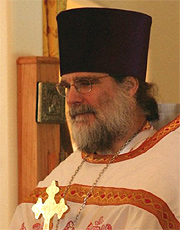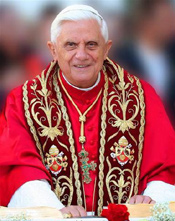 by Dave White –
by Dave White –
Slothful people, to many people’s surprise, are often active, busy, and hard-working people who have given their lives to trivial matters, not transcendent ones. They have immersed their lives with empty pleasures. Slothful people regularly find themselves bored and struggle to compensate by filling their time with self-centered diversions. It’s not that their lives are filled with motion, energy, and bustling about; it’s that their lives are slothful regarding the things that really matter!
Slothful People Embrace Escapism
Sloth is not mere laziness. It’s not a couch potato. Sloth is escapism of the deadly sort—including drug users, TiVo addicts, and obsessive video gamers. Yet escapism also includes most workaholics! Sloth saps our time and emotions through positive activities like clubs, hobbies, and sports—while leaving scant energy for our marriages or kids or preeminent duties. [Read more…]

 by Fr. Seraphim Holland –
by Fr. Seraphim Holland – by Art Lindsley –
by Art Lindsley – by Joel J. Miller –
by Joel J. Miller – by Eric Metaxas –
by Eric Metaxas – by Deacon Keith Fournier –
by Deacon Keith Fournier – by Ray Nothstine –
by Ray Nothstine – by William J. Tighe –
by William J. Tighe – by SpeakUpChurch –
by SpeakUpChurch – by Pope Benedict XVI –
by Pope Benedict XVI –